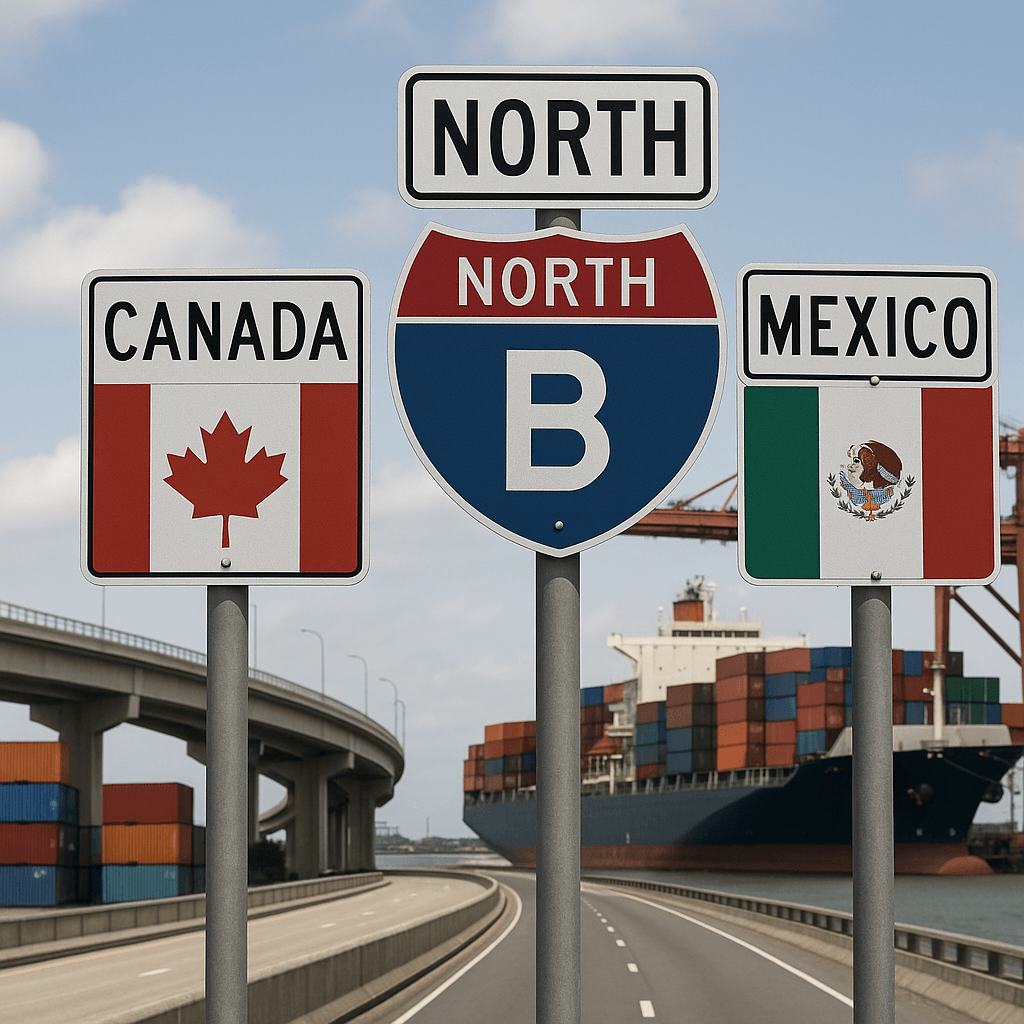Canada and Mexico are preparing to launch a bold new trade initiative that could reshape North American commerce—and significantly impact the U.S. economy. As reported by PPR Mundial, the two countries are finalizing a plan to create a joint land-and-sea trade corridor that bypasses the United States entirely, aiming to reduce transhipment tariffs and taxes while increasing efficiency and economic cooperation.
Dubbed the “North Belt,” the corridor is projected to be fully operational by 2028. An agreement between the two nations is expected to be signed as early as September. The plan is ambitious: by facilitating smoother container and data movement across a border-free, clean-energy route, Canada and Mexico hope to not only deepen their own economic ties but also attract international trade that might otherwise flow through the U.S.
The potential economic impact on the U.S. is enormous. Estimates suggest it could cost the country up to $245 billion over five years—$69 billion in lost tax revenue, $17 billion in indirect economic activity, and a $39 billion blow to employment, with the U.S. Midwest particularly vulnerable to a projected 2.8% economic decline.
While the U.S. could, in theory, re-enter a rules-based trade framework, experts note that the long-term efficiencies of this new corridor make it likely to endure regardless. The North Belt is shaping up to be not just a regional shift, but a signal of changing tides in global trade.






Could I get the source of this?
Sounds like a grand plan but how can they move good between countries by rail? Isn’t the United States in the middle? Would they allow that? To pass through the United States?
Clean-energy route? When did shopping become clean energy?
Wow amazing.
As any ”road” from Mexico has to pass through the USA, I doubt if the Americans will agree on that. If they do, rest be assured that any goods transported will have heavy tariffs on them.
That leaves a water route from Mexico, along the western Pacific seaboard, north to British Columbia. Or alternatively, the water route could go from Mexico through the Gulf of America, and travel north along the Atlantic seaboard. These seem to be circuitous paths to chose simply because Canada lacks a strong leader to negotiate tariffs with President Trump.
Go Canada go! You are the best